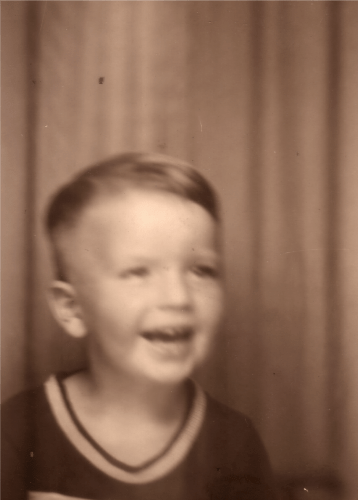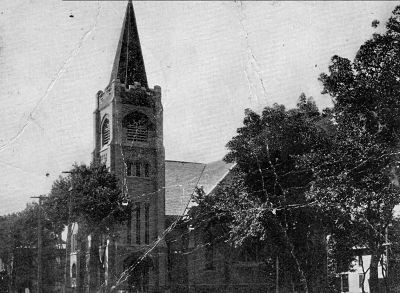Catholicism Asks A Lot, Especially When You Are Young
Growing up Catholic was tough. Maybe not so much today, but in the middle of the twentieth century it was. You’re a kid. You don’t know any better. Lots of rules. Lots and lots of stories from the Old Testament and the New. It’s what your parents and other adults believe. It must be real. Nobody is suggesting anything different.
So much is presented as the truth. You believe because you don’t want to lose your faith, that special wrapper around your brain that keeps you on your way to heaven. You pray a lot and go to Mass again and again. Mass is amazing with candles, bells, guys dressed long flowing dresses, and all in a foreign language. We didn’t even know we were saying “I am not worthy” three times at one point in the service. It was self-indictment without a whimper protesting our innocence.
Holy Communion was the high point of the Mass. Worshippers filed down to the communion railing, a low banister, where they would kneel and await the priest who was going from one person to the next down the line. When he approached an individual communicant, he would utter, Hoc est corpus meum,* the signal to stick out the tongue to receive the host, a symbolic act of holy cannibalism as everyone under pain of mortal sin was required to believe the host was the body of Christ. Never mind Christ died centuries earlier. Never mind your sense of sight, taste, and touch supported the unshakable conclusion that the wafer was, indeed, a bit of unleavened bread about the size of a quarter. You were not supposed to use your natural senses when it comes to holy stuff. You are not supposed to think. Piety does not demand it.

Not supposed to think . . .
An old man was the pastor of our parish. The Monsignor seemed ancient to me. When you’re a kid, old people are a different species. Human, yes, but with quirks and limitations. They can’t run, so you can always get away from them if you need to. They talk hoarsely. Cough a lot, sometimes rattling up disgusting phlegmy hockers. Slobber. Fall asleep in front of others. They are exempt from some of the rules. They chew with their mouth open. They spit and fart. They have ugly growths on their faces. Everyone seems forgive with them for everything no matter what.
One morning, Monsignor lost his balance while distributing communion. He tried to catch himself by leaning into the communion railing. The railing at the point of his mishap was a gate about knee high, and on this morning, it had not been latched. When Monsignor lunged to recapture his balance, the gate gave way, swung open, and he pitched forward like huge bag of laundry and tumbled down the two steps up leading up to the railing. The hosts, the quarter-sized bodies of Christ, went flying all over the floor. The chalice that held the hosts flew out of his hand as he reached to break his fall and went skidding across the linoleum.
The women all gasped collectively. Several men rushed to help. Some began picking up the bodies of Christ that were strewn about. Others helped the old man back to his feet, an achievement encumbered by his floor length vestments. He struggled as if he was tangled in his own bedsheets. He refused to be fussed over and assured everyone he was all right. The men who picked up the hosts brought them by the handful to the old man as he held out the retrieved chalice to receive them. He nodded his approval to each as they approached, a gesture later rumored later to be a signal the men were forgiven for touching the consecrated host with unconsecrated hands, a mortal sin under any but dire circumstances, a criterion for which the Monsignor’s unfortunate fall surely satisfied.

God Fell Down . . .
In the middle of this solemn emergency, I turned with alarm to my mother as exclaimed, “Momma, God fell down.”
“Oh, no, sonny,” she said at least loud enough so that anyone who heard me would also hear her. Mother was often overcome by a kind of manic self-consciousness. She began bowing compulsively and smiling in quarter turns to the entire congregation, all of which seem to say, “The child doesn’t know the Monsignor isn’t God. He doesn’t know that non-consecrated hands have touched the hosts. Oh my, there is so much he does not know.”
We were, after all, good Catholics. We always went to Mass on Sunday. It didn’t matter where we were. Out of town. Traveling. My father took my brother and me duck hunting in the fall. We would be out in a duck blind in the wind and the rain on a cold autumn day, yet we would drop everything, trudge back to the car, drive into the nearest town, and attended service, and return to the blind afterwards. When we went on a family trip, we would stop and say three “Hail Marys” at a church none of us had ever entered at any time earlier. That way we could, each one of us, liberate one soul purgatory by earning a plenary indulgence for them. My favorite was to pray for the guy who had the longest sentence to serve. I never liked waiting for anything.
In short, my brother, my sister, and I were steeped into the belief system that encumbered our ability to discern between fact and fantasy. We were taught to ignore what our common sense told us. All kinds of things were not only possible, they were articles of faith that could only be rejected under pain for mortal sin. Our young minds were being tilled for the sowing of any random misperceptions throughout the rest of our lives, perhaps drawn into delusions with both good and unfortunate consequences, and even mild, short-lived episodes of schizophrenia that would only cost a person a job, sometimes, perhaps, a marriage. Fortunately the culture of the community accepted what otherwise might be considered unbridled madness as normal behavior. Quick-draw arguments were always at the readiness to assert that no harm ever comes of any of it
Random Misperceptions . . .
Somewhere along the line, we learned Peter Rabbit was fantasy whereas the Virgin birth of Jesus was a profound truth. A faculty of the intellect came to life in time to help us dismiss Santa Claus, the Grinch, the Headless Horseman, Jack Frost, Johnny Appleseed, and the great pumpkin as harmless nonsense whereas people being raised from the dead, lepers made clean, blind made to see, water changed into wine, walking on water, and on and on and on were quite seriously true.
Nevertheless, sacred beliefs had the potential for creating an embarrassment if not a painful crisis. We kept working out dodgy solutions to minimize the fallout. After all, if one article of faith proved untrue, the whole fabric of our faith was threatened. We learned to condemn the sin but love the sinner. To acknowledge God works in mysterious ways. Bad things happen to good people. Eventually, of course, it all turns out to be an irreconcilable mish-mash of superstition and mythical flotsam cluttering up anyone professing to practice the faith with whole-hearted commitment. Another story makes the point.

I am 24 years old. I have been married for six years and my wife is pregnant with our fourth child. I am supporting our family on a high school teacher’s salary – actually a Catholic prep school salary as Catholic schools pay less because lay teachers are also compensated in grace for serving the youth of the Church. I am very much a Catholic. All the things I have been taught remain true for me. I practice my faith. I work hard at it, very hard. I reconcile the irreconcilable. I accept on faith what my senses and reason cannot perceive as possible objective truth.
Replenishing the ranks of the fallen . . .
One day, I am called into the headmaster’s office. He is a priest and a member of a religious order. He has also heard of my wife’s fourth pregnancy. At some point in the discussion, he asks, “Why are you having all these children?” exercising his priestly authority to pry into my personal life as I was a mere layman.
I am somewhat taken aback. The Church has made its stand on birth control very clear for decades. Other laymen were on the faculty. Curiously, however, none had more than two children and most had been married much longer than I. I was out of step. At a loss for anything better to say, I replied, “To replenish the ranks of the fallen angels who followed Satan into hell when he was banished by God from heaven.
It was the headmaster’s turn to be taken aback. “My goodness,” he exclaimed. “Such an ancient myth” or words to that effect. I was embarrassed. I thought I had given him a reason that made sense in the light of our shared faith.. “Well,” he finally said to break the silence and stood up. I inferred from his tone and manner that the church was not ordering my wife or anybody else to have children. To be honest, however, the only things he made clear was that our conversation was over.
Escaping the cluthes . . .
Years later, when I had finally escaped the clutches of the belief system imposed on me before I reached the age of reason, I gave the headmaster the benefit of the doubt. He may have wanted to keep as a teacher and a coach. I was doing well in the classroom. The golf team I chauffeured from tournament to tournament won the state championship one year. Perhaps he saw that he could never pay me enough to support my family if it continued to grow. My reply put him in an impossible position. His silence, however, let the secret out. You do not have to believe it all. You only need to believe what works for you. Always an all-or-nothing guy, I decided to forget it and go on with my life.
I eventually resigned from teaching. In the years that followed, delusional behavior was a cause of considerable mental anguish for me. Turns out, you need to use a lot of common sense to practice your religion or you set yourself up for a lot of trouble. I finally gave up Catholicism and religion altogether and became far happier.
*Here is my body. Hoc est corpus meum. This phrase worked its way into common parlance as a magician’s incantation “Hocus pocus”
